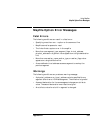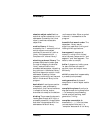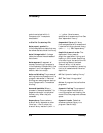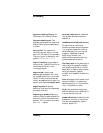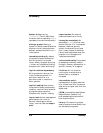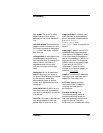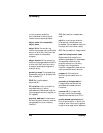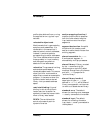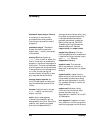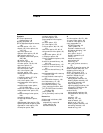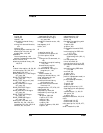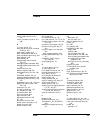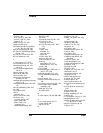
Glossary 321
Glossary
profile data obtained from running
the application on a typical input
data set.
relocatable object code
Machine code that is generated by
compilers and assemblers. It is
relocatable in the sense that it
does not contain actual addresses;
instead, it contains symbols
corresponding to actual addresses.
The linker decides where to place
these symbols in virtual memory,
and changes the symbols to
absolute virtual addresses.
relocation The process of revising
code and data addresses in
relocatable object code. This occurs
when the linker must combine
object files to create an executable
program. It also occurs when the
dynamic loader loads a shared
library into a process's address
space.
restricted binding A type of
binding in which the dynamic
loader restricts its search for
symbols to those that were visible
when a library was loaded.
RPATH The variable which
contains the search path for
dynamic libraries.
section mapping directive A
mapfile directive which specifies
how the linker should map the
input sections onto the output
segments.
segment declaration A mapfiel
directive which creates a new
section or edits the attributes of an
existing segment.
shared executable An a.out
file whose text segment is
shareable by multiple processes.
shared library A library, created
by the ld command, which
contains one or more PIC object
modules. Shared library file names
end with .sl. Compare with
"archive library."
shared library handle A
descriptor of type shl_t (type
defined in <dl.h>), which shared
library management routines use
to refer to a loaded shared library.
standard error The default
stream for sending error messages
— usually connected to the screen.
standard input The default
stream for collecting character
input data — usually connected to
the keyboard.



